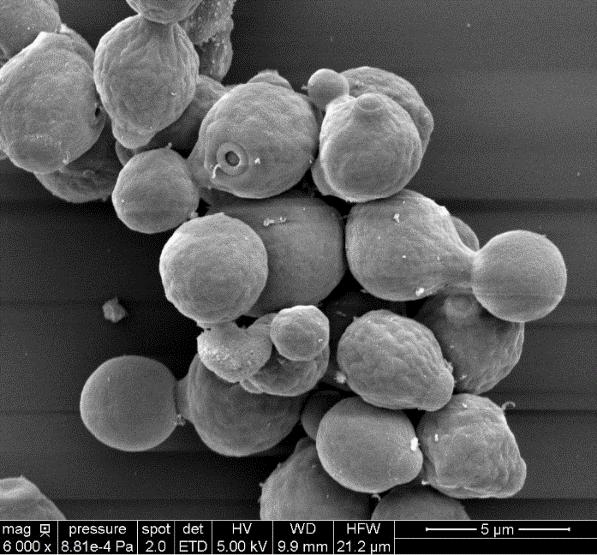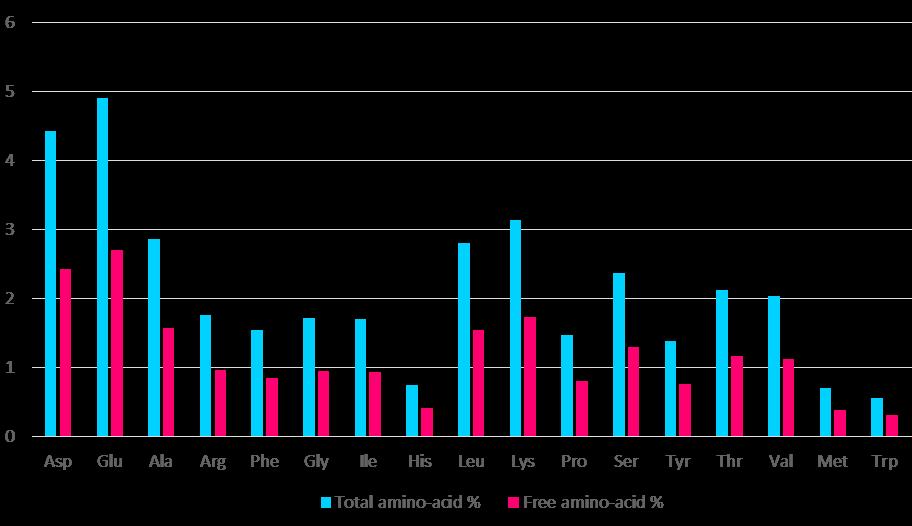
5 minute read
Unlock the Power of Functional Hydrolyzed Yeast
By Francesca Susca, DVM, PhD, Pet Development Manager, Lallemand Animal Nutrition
YELA PROSECURE is a specifically designed non-GMO Saccharomyces cerevisiae hydrolysed yeast. It offers highly digestible and functional nutrients that support animal well-being, digestive care and product palatability while contributing a balanced profile of free amino acids.
With more than 100 years of expertise in yeast production, Lallemand is a global leader in yeast development and applications in all areas of the food chain, including baking, speciality cultures for cured meats and wines, human health solutions and animal nutrition. Lallemand works continuously on the screening of different yeast biomass and on the optimization of the production process, which led to the development of YELA PROSECURE. The controlled hydrolysis process, conducted with the addition of specifically selected exogenous enzymes, ensures high nutrient digestibility and functionality while offering reliable results in terms of product quality and availability.
In the case of autolyzed yeasts, the yeast cell lysis is partial, involving yeast endogenous enzymes only, leading to less control in the final product composition. As an illustration: imagine eating a watermelon. If you do not process it in any way, it will be almost impossible for you to benefit from its nutrients. This situation can be compared to a non-lysed inactivated yeast. Autolysis can be compared with trying to open the watermelon without any tools. You could, for instance, smash it on the table and you would end up with different pieces of fruit; complicated and variable to eat, but still better than the intact watermelon.

Hydrolyzed yeast cells (scanning electron microscopy).
Finally, hydrolysis can be compared to using a good knife. Of course, the better your tools (i.e., enzymes), the better the hydrolysis will be. In the example of the watermelon, we would use a sharp chef’s knife to cut the melon into perfectly edible pieces, rather than a butter knife.
Providing functional nutrients with a triple action along the digestive tract
In the mouth: with 4.9% free glutamic acid, this functional yeast product acts as a palatability enhancer. Originally found in Kombu broth, glutamic acid offers the natural umami flavour we associate with traditional Chinese cooking; which monosodium glutamate (MSG) was created to mimic; and is a natural component in many fermented and aged foods such as soy sauce and Worcestershire sauce.
In the upper gut: highly digestible proteins, a high level of free digestible amino acids and small peptides, with early and fast amino acid absorption kinetics. This advantage is related to Lallemand’s mastering of the production process, showing the importance of a controlled hydrolysis which makes proteins more accessible, having been lysed into free functional amino acids and small peptides that are readily and directly absorbed.
In the lower gut: the remaining fractions consist of fermentable insoluble carbohydrates, leading to an improvement of microbial diversity and activity with a release of valuable short chain fatty acids such as butyrate.
Compared to whole-cell inactivated yeasts and autolyzed yeasts, hydrolysis is a much more controlled process as it involves the addition of specifically selected enzymes during the production process to optimize and orient the lysis, ensuring a specific level of functional ingredients and a consistent batch-to-batch product composition. In comparison, whole-cell inactivated yeasts are not lysed, and therefore have lower nutrient digestibility and functionality.

YELA PROSECURE now contains more than 42% crude protein with 94% protein digestibility. Free amino acids and small peptides are thought to contribute to maintaining gut health. The concept for this is based on 3 layers: • Intestinal morphology: Dietary amino acids are major fuels for the small intestinal mucosa and are obligatory for maintaining intestinal mucosal mass. Glutamate and aspartate have been known to stimulate the growth of small intestinal mucosa. Glutamic acid, as well as being palatable, is used by the body to produce glutamine and glutamate; which is also an important neurotransmitter. • Gut microbiota: a multicellular and multifunctional organ. Maintaining a state of eubiosis over dysbiosis is very important. Threonine for example not only regulates protein homeostasis within the body, but also supports the growth of bacteria within the gut. • Gut immunity and anti-oxidation: the gut contains 70% of the immune cells within the body and many amino acids such as arginine, glutamine and tryptophan are important in maintaining gut immune system activity. Methionine serves as a methyl donor for several important processes, such as DNA methylation and polyamine synthesis, as well as its selenium storage function as selenomethionine. Cysteine is important for the production of compounds involved in immune response as well as selenocysteine being essential in many important enzymes, such as glutathione peroxidase, which is responsible for regenerating glutathione, when neutralising reactive oxygen species.
YELA PROSECURE application and growing pet food trends
Beyond the advantages of functionality and highly digestible nutrients, hydrolyzed yeasts are affordable and available in large volumes, which can be a limiting factor in the case of yeast extracts, for which the extra processing steps linked to the concentration of yeast soluble constituents mean higher costs and limited availability due to competition with uses in food industry. The negligible levels of biogenic amines within YELA PROSECURE also results in a palatable and quality yeast product. Biogenic amines are produced as a result of amino acid decarboxylation and breakdown by pathogens and undesirable substances. This not only wastes amino acid supply, but biogenic amines can also produce putrid smells, unpalatable taste and result in toxicity at high levels.
Today, we are seeing some of the key market drivers that are putting pressure on the supply of materials and ingredients for pet food. These include the increase in natural and human grade pet food products, competition between food and feed in terms of edible protein, supply chain challenges, price volatility, the rise of vegan and vegetarian trends, as well as increasing demands for more sustainable feed.
The development of new functional feed ingredients is a growing trend that can help address some of these concerns. As such, yeastbased ingredients are seen as promising solutions.
Conclusion
YELA PROSECURE can be used in all companion animal species, especially during early stages of development when digestive maturity has not yet been achieved. This is when it is most important to provide high quality and highly absorbable nutrients to promote animal growth and health maintenance. It can also fulfill two roles in one, as it offers a superior protein profile to other yeast products and can be used as an alternative to traditional palatants, or to lift the palatability profile of a food or supplement. YELA PROSECURE is an innovative feed material (Regulation (EU) No 68/2013) that can be used in all animal species and organic production under regulation (EC) No 2018/848.
References available upon request. Francesca Susca, DVM, PhD Pet Development Manager, Lallemand Animal Nutrition fsusca@lallemand.com lallemandanimalnutrition.com










